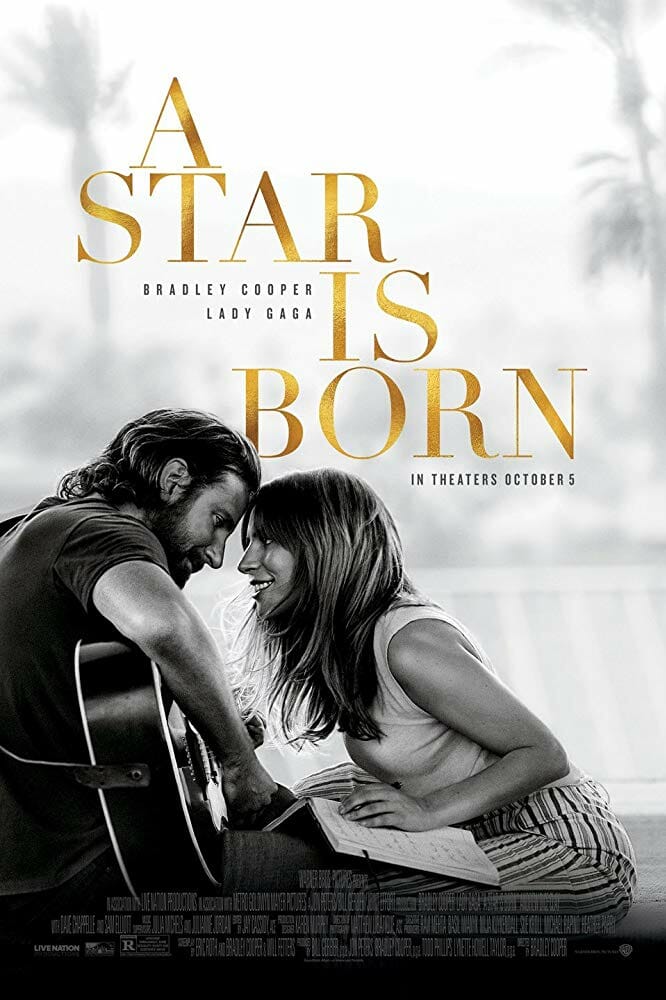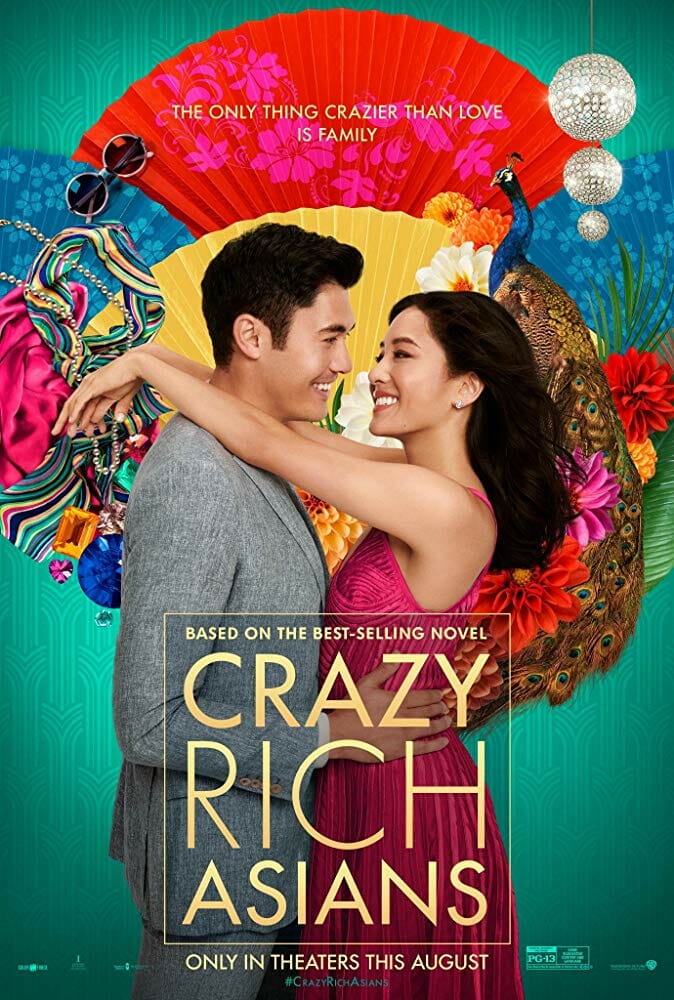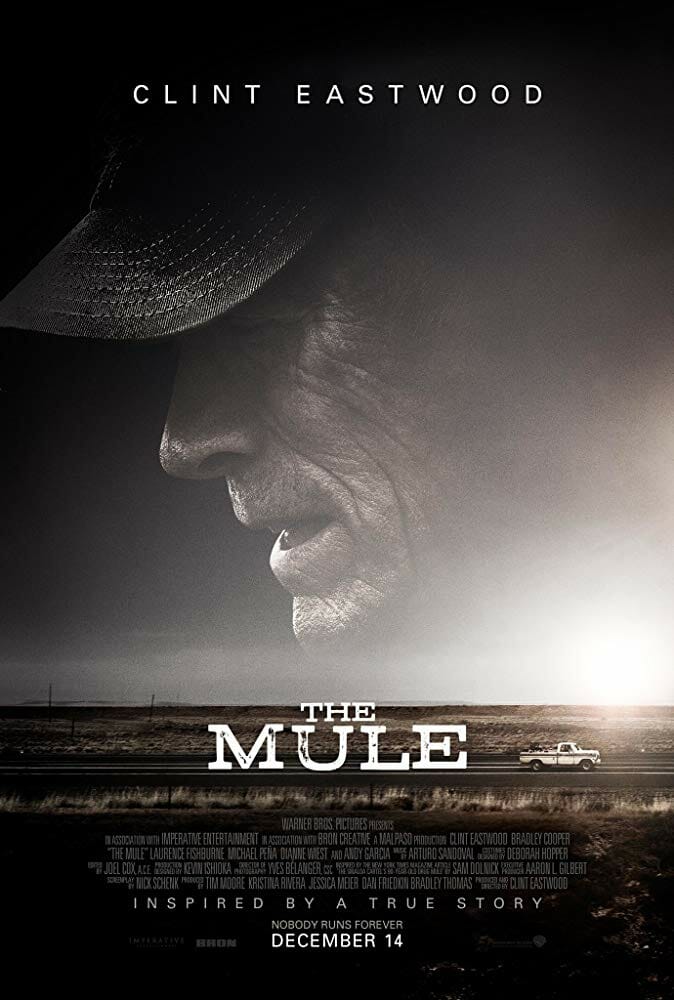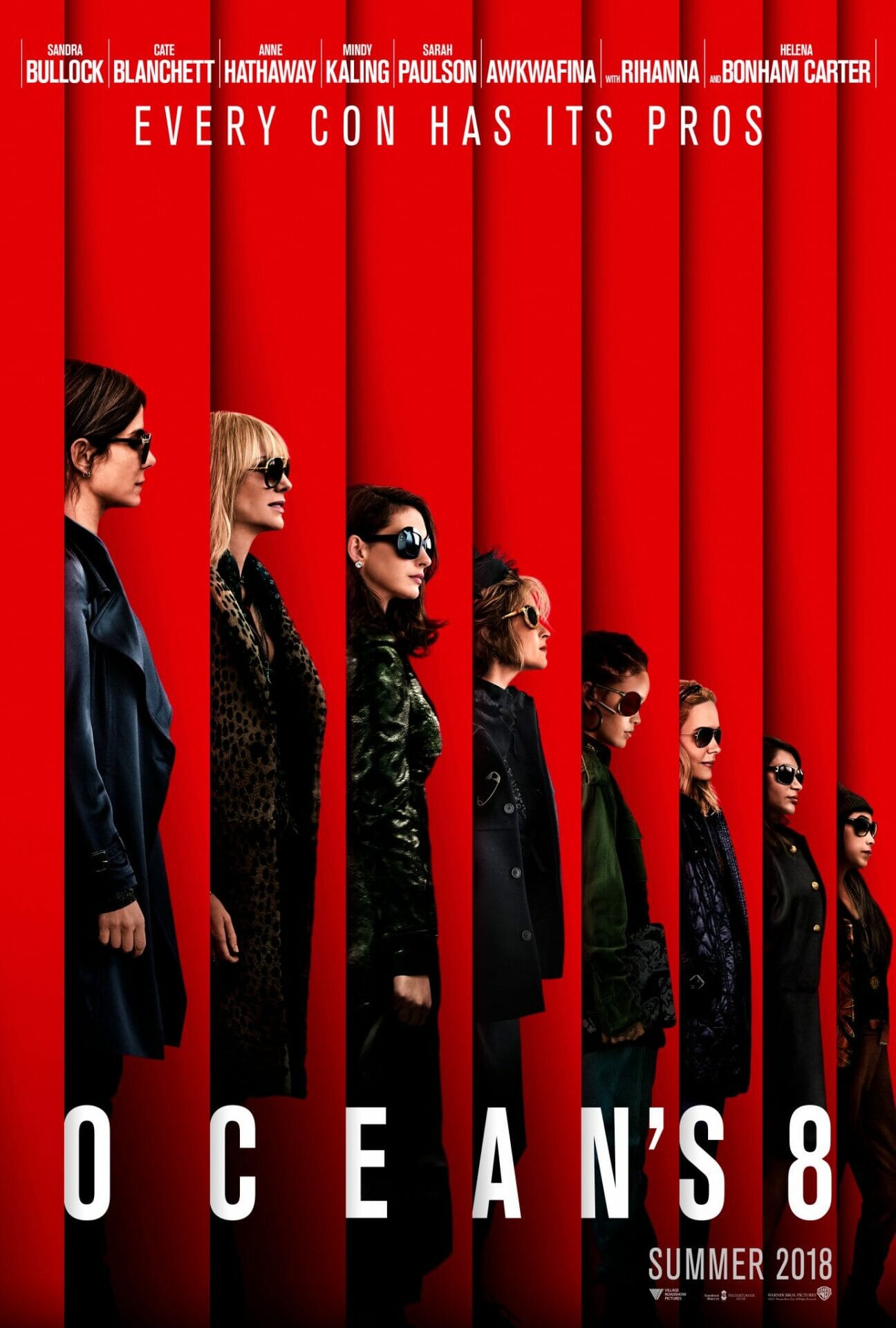Started by four Polish Immigrant brothers in the early 20th century as a movie theater business, Warner Bros. became a film studio in 1923. Warner Brothers has produced several classic films including Casablanca, A Clockwork Orange and Goodfellas as well as the blockbuster Harry Potter franchise, and several DC Comics adaptations.
One of Warner Bros.’ most notable films, Rebel Without a Cause (1955), included one of the earliest and notable gay-coded characters in Sal Mineo’s tragic character Plato. In the decades since, other LGBTQ inclusive films from the company include Dog Day Afternoon (1975), The Color Purple (1985), Interview with the Vampire (1994), and Midnight in the Garden of Good and Evil (1997). Notably, nearly all of those films were based on external source material that included LGBTQ characters. More recently, Warner Bros. has released inclusive films such as Alexander (2004), Kiss Kiss Bang Bang (2005), V For Vendetta (2005), and J. Edgar (2011). The studio’s slate in recent years has included a mix of content with some stand outs like Tammy (2014) and Storks (2016), but also some notable lows like Get Hard (2015), Central Intelligence (2016), and CHiPs (2017) which all traffic heavily in gay panic jokes and other cheap punchlines.
Crazy Rich Asians
Vito Russo Test: Pass
Widest theatrical release: 3,865 theaters
This blockbuster romantic comedy with a primarily Asian cast tells the story of an American, Rachel, who is blindsided by her boyfriend Nick’s wildly wealthy family. That family includes Oliver (out actor Nico Santos), a designer and the self-proclaimed “poor relation – the rainbow sheep of the family.” Oliver does various tasks for the family, and over the course of the film becomes close to Rachel, advising her as to how to win over the family. Oliver gets to live a bit beyond being a prop as the gay best friend to Rachel, but we would definitely like to see him get more development in the second movie. It is particularly notable that Oliver is one of a handful of LGBTQ Asian-Pacific Islander (API) characters GLAAD counted this year, following a year with no LGBTQ API people in mainstream releases.
Detective Chinatown 2
Vito Russo Test: Fail
Widest theatrical release: 115 theaters
 This comedy sequel follows a group of friends trying to solve a series of murders while everything seems to be going wrong for them. There is one scene where the group is stuck in a bar with a gang of American bikers. The leader of the bikers walks toward Tang who is dressed only in boxers, and forces Tang into dancing with him if he wants to leave the bar undamaged. When he leans in for a kiss, Tang is clearly disgusted and instead the man puts a rose into his mouth. He then has Tang sit on his lap while they squeeze into a photo booth. Tang’s friends make fun of him once they all leave and he implores them not to tell anyone what just happened and stresses that he did this for them so they could all get out. The film clearly leans into the idea of gay panic with how ashamed Tang is to dance with the biker, but also reinvigorated portrayals of predatory gay men with the biker (the only actual gay character) existing only as a punchline who pressures Tang into a slow dance despite his clear resistance. The scene would have been better left on the cutting room floor, it had no impact on the overall plot.
This comedy sequel follows a group of friends trying to solve a series of murders while everything seems to be going wrong for them. There is one scene where the group is stuck in a bar with a gang of American bikers. The leader of the bikers walks toward Tang who is dressed only in boxers, and forces Tang into dancing with him if he wants to leave the bar undamaged. When he leans in for a kiss, Tang is clearly disgusted and instead the man puts a rose into his mouth. He then has Tang sit on his lap while they squeeze into a photo booth. Tang’s friends make fun of him once they all leave and he implores them not to tell anyone what just happened and stresses that he did this for them so they could all get out. The film clearly leans into the idea of gay panic with how ashamed Tang is to dance with the biker, but also reinvigorated portrayals of predatory gay men with the biker (the only actual gay character) existing only as a punchline who pressures Tang into a slow dance despite his clear resistance. The scene would have been better left on the cutting room floor, it had no impact on the overall plot.
Fantastic Beasts: The Crimes of Grindelwald
Vito Russo Test: Fail
Widest theatrical release: 4,163 theaters
Author and Fantastic Beasts screenwriter J.K. Rowling announced in 2007 that Dumbledore was gay and in love with his best friend and eventual enemy Grindelwald following the release of the final Harry Potter novel. Though his relationship was never included in the books, fans were excited to get more insight into Dumbledore’s past with Grindelwald in the five-film Fantastic Beasts series, which is specifically telling the story of Grindelwald’s rise to becoming a dark lord and his eventual defeat at the hands of Dumbledore. But the films continue to hold back from exploring this relationship or even acknowledging it.
In early 2018, director David Yates said that Dumbledore would not be “explicitly gay” in the film which sparked a justified backlash from fans and entertainment critics alike. Rowling followed with a statement that Dumbledore and Grindelwald’s relationship will eventually be addressed in the films. In March, Rowling made another comment about Dumbledore and Grindelwald in a featurette on the Crimes Blu-Ray, saying, “It was passionate, and it was a love relationship. […] I’m less interested in the sexual side — though I believe there is a sexual dimension to this relationship — than I am in the sense of the emotions they felt for each other…” Yates added, “This is a story about two men who loved each other, and ultimately have to fight each other. It’s a story for the 21st century.”
However, the film itself contains only brief scenes about their possible past, though much of it is left to subtext and insinuation. Midway through the film, which takes place in the late 1920s, Aurors confront Dumbledore saying that he is the “only wizard who is his [Grindelwald’s] equal” and pressure him to fight Grindelwald. After Dumbledore says he can’t, the Auror asks if “this” is the reason and casts a spell to show a flashback of the two men staring at each other. He says the boys were like brothers, and Dumbledore replies, “We were closer than brothers.” Later, Dumbledore looks into the Mirror of Erised – an enchanted mirror which shows the “deepest and most desperate desires” of the viewer’s heart – and sees a flashback of him and Grindelwald as teens making a blood pact and a flash of present day Grindelwald. At the film’s end, Dumbledore recovers the memento created from the pact, and it is revealed that the two had sworn to never fight each other. Presumably, next films will focus on Dumbledore’s quest to break their pact, so he can fight Grindelwald and ultimately save both the Muggle and Wizarding worlds in 1945.
GLAAD did not count Dumbledore as a gay character in its tally, and will not count him until the films commit to including his identity onscreen. The movie’s attempts to downplay and obfuscate his identity remains glaring, and reflects poorly on a franchise that has such a foundational message of love and acceptance. Particularly when contrasted with the statements coming from the creative team about the “love relationship” and “sexual dimension” between the men in an attempt to pacify fans and critics without ever telling the actual story.
If the remaining films in the franchise do not explore Dumbledore and Grindelwald’s relationship and the presumably substantial effect that past has had on their present and the men they have become, the Fantastic Beasts series will be remembered as one of the most egregious examples of straight washing in modern film. The only way to divorce the impact of their relationship from the story about their confrontation is through intentional erasure and revision. The third film was recently pushed back to November 2021. The filmmakers should use that extra time to consider the opportunity they have here to take a major step forward.
The Mule
 Vito Russo Test: Fail
Vito Russo Test: Fail
Widest theatrical release: 2,787 theaters
Clint Eastwood’s latest film stars himself as Earl, an old flower farmer who becomes a drug mule for a cartel. On his trips, he encounters various types of people on the road. Earl meets a group of motorcyclists and misgenders one of them; calling her “son” then “ma’am” until she corrects him to say “we’re the dykes on bikes.” Earl accepts this with a shrug and some mechanical advice. The scene serves no real impact on the plot.
There is an ongoing plot in which two DEA agents are getting information from Luis, a man who knows the inner workings of the cartel. The agents taunt him by using jokes about prison rape to scare Luis into giving them information. There are additional scenes where Earl sleeps with two women, but the women are entirely focused on him rather than engaged at all with each other. GLAAD did not count Luis or either of the women in its tally.
Oceans 8
 Vito Russo Test: Fail
Vito Russo Test: Fail
Widest theatrical release: 4,145 theaters
The newest in the Ocean’s franchise involved a plot by an all-women crew of thieves to steal jewels from the prestigious Met Gala. There are several cameos by famous people in the fashion world, including out fashion designers Zac Posen and Alexander Wang. None of the fictional characters portrayed in the film are LGBTQ.
Ready Player One
Vito Russo Test: Fail
Widest theatrical release: 4,234 theaters
An adaptation of the best-selling novel of the same name, Ready Player One takes place in a dystopian future where people spend most of their time living as avatars in a virtual reality world called the OASIS. The film follows main character Wade on a quest to find hidden keys to control the OASIS. He is joined on his quest by his best friend Aech, a supernaturally large, gray man, in the world of the OASIS. There is one scene in the OASIS where Aech decides to “go with it” when a naked woman comes on to him, but the woman turns out to be a zombie who was trying to lure Aech close enough to attack in an homage to The Shining. Later on, Wade and the audience learn that Aech in real life is a Black woman named Helen Harris (out actor Lena Waithe). In the book, Helen is revealed to be a lesbian whose mother encouraged her to create a white male avatar in the OASIS so she would not face discrimination. She kicked Helen out after she came out. There was an opportunity for the film to include that Helen is a lesbian while fixing the retrograde homophobia surrounding her character, but that part of her story didn’t make it to screen.
A Star is Born
Vito Russo Test: Fail
Widest theatrical release: 3,904 theaters
 The third remake of the 1937 film of the same name, A Star is Born follow singers Ally and Jackson Maine through their music and relationship. The film begins with Jackson stumbling into a drag bar and seeing Ally sing for the first time. He goes backstage to meet her as well as some of the drag queens (Shangela, Willam), and Ally explains that she is the only non-drag performer put on stage because of her incredible voice. Though the drag queens seemed to be a large part of Ally’s life before Jackson, they only show up once more after that initial sequence, over a FaceTime call wishing Ally good luck at the Grammys. Lesbian singer Brandi Carlile cameos as herself during a performance, and bisexual singer Halsey also has a brief role. However, though Carlile is credited as herself, Halsey is credited as “Music Awards Presenter,” thus she was not counted in our tally.
The third remake of the 1937 film of the same name, A Star is Born follow singers Ally and Jackson Maine through their music and relationship. The film begins with Jackson stumbling into a drag bar and seeing Ally sing for the first time. He goes backstage to meet her as well as some of the drag queens (Shangela, Willam), and Ally explains that she is the only non-drag performer put on stage because of her incredible voice. Though the drag queens seemed to be a large part of Ally’s life before Jackson, they only show up once more after that initial sequence, over a FaceTime call wishing Ally good luck at the Grammys. Lesbian singer Brandi Carlile cameos as herself during a performance, and bisexual singer Halsey also has a brief role. However, though Carlile is credited as herself, Halsey is credited as “Music Awards Presenter,” thus she was not counted in our tally.
Ally’s best friend Ramon greets Jackson at the drag bar, and is clearly in the social circles of the drag queens. It isn’t stated if he is queer, and he never shows interest in men or women. Actor Anthony Ramos said of the character, “’Does he like guys, does he like girls?’ I played him in a way that the dude doesn’t even care. He is who he is.” Because this was not made canon in the film and there is no on-screen indication of who he might be interested in, GLAAD did not count Ramon in its tally.
Teen Titans Go! To the Movies
Vito Russo Test: Fail
Widest theatrical release: 3,188 theaters
Teen Titans Go! To the Movies is an animated film aimed at a younger audience. This is the latest in a long line of DC movies to include the character of Wonder Woman, with no mention of her bisexuality. Though the movie itself didn’t dwell on much romance for any character, it is a reminder that Wonder Woman is a staple of this universe, yet her sexuality continues to be erased.
OPPORTUNITIES AHEAD
Warner Bros. has several book adaptations coming up this year which could include queer characters. The Goldfinch is out in October, and while the film left Hobie (Jeffrey Wright) as an ambiguously gay character, the film has the opportunity to more fully develop his story. November’s Motherless Brooklyn should include the two minor gay characters, both mob bosses, who had a moment of holding hands in the novel before pulling away when they were found.
A much more worrisome book adaptation is Doctor Sleep, a sequel to The Shining set to come out in early November. The books include a character named Andi or Snakebite (played in the film by Emily Ayn Lynd), a member of the nomadic psychic cult known as True Knot who feed off the energy of kids with the shining. She has the power to make people fall asleep by suggestion. Andi was molested by her father as a child and formed a distrust of all men, lingering even after she murdered her father and escaped. She first believes herself to be asexual as she isn’t attracted to men because of her trauma – a too frequent damaging stereotype held about asexual people. Andi eventually sleeps with True Knot leader Rose who only was intimate with Andi to lure her into the group; she cuts off their relationship and goes back to her boyfriend when Andi attempts to pursue a further relationship. Andi then becomes involved with another True Knot member, Silent Sarey. In the end, Andi is tortured to death and Rose and Silent Sarey are eventually killed as well in another example of the outdated, harmful “Bury Your Gays” trope. Given the number of ways in which her story is grossly mishandled in the source material, it does not seem likely that the film will be able to course correct enough to make this an acceptable character.
February’s Birds of Prey (and the Fantabulous Emancipation of One Harley Quinn) will introduce lesbian Gotham City detective Renee Montoya to the DCEU, played by Rosie Perez. Montoya will be teaming up with Harley (who is bisexual in source comics, though has yet to be portrayed as such in films) and two other heroes to protect a young orphan who is threatened by a crime lord. Montoya has a storied history and has been in several relationships in the comic books, we hope to see some of that background fleshed out here.
While there is no date yet, we are looking forward to Oliver returning in the confirmed sequel Crazy Rich Asians 2. Warner Bros. has also optioned several properties which include LGBTQ characters: a musical of The Color Purple; a biopic on the Vietnam vet Oliver Sipple who rescued Gerald Ford’s wife and was then outed to the press; an adaptation of The Dreadful Tale of Prosper Redding which included minor lesbian characters; and Ava DuVernay’s New Gods will likely include Big Barda (who DuVernay has mentioned as one of her favorite characters). In DC’s Bombshells, Barda is in a relationship with another woman, though she is married to Mister Miracle in some other comics.


 Vito Russo Test: Fail
Vito Russo Test: Fail Vito Russo Test: Fail
Vito Russo Test: Fail










